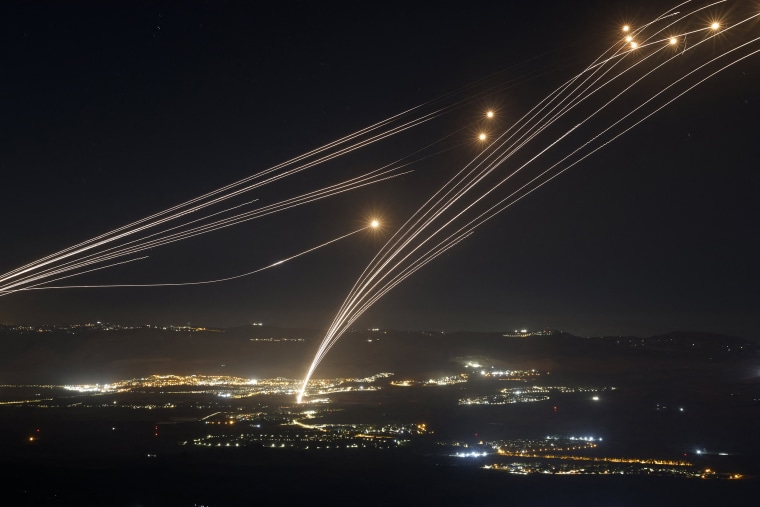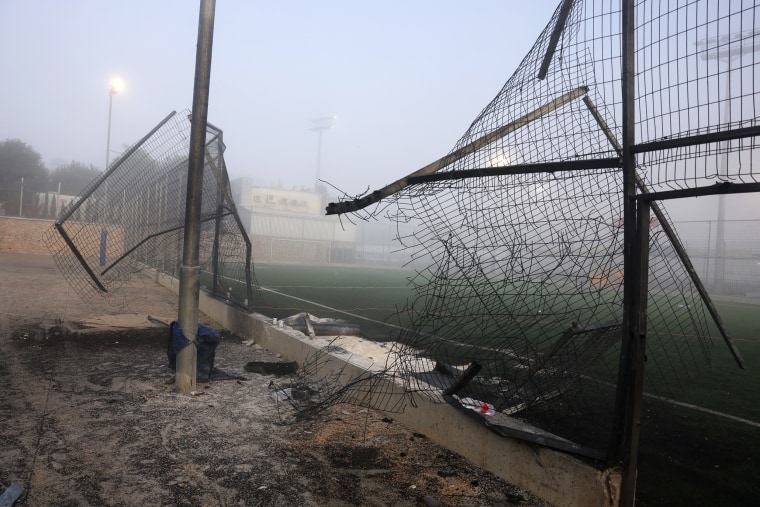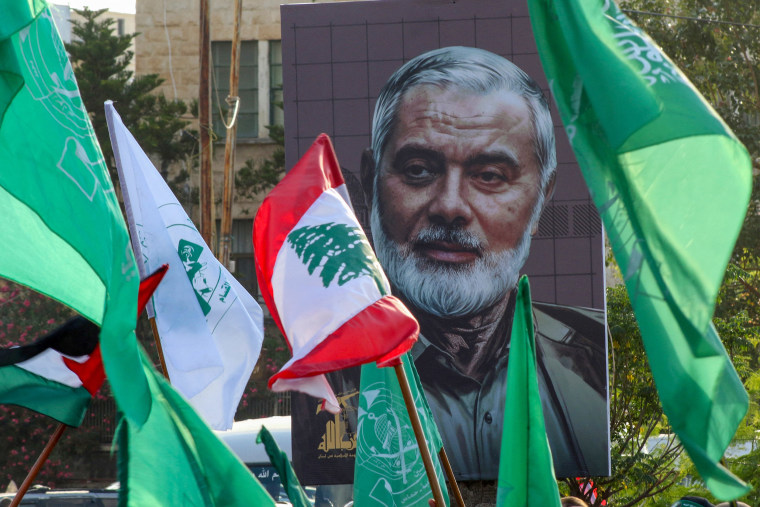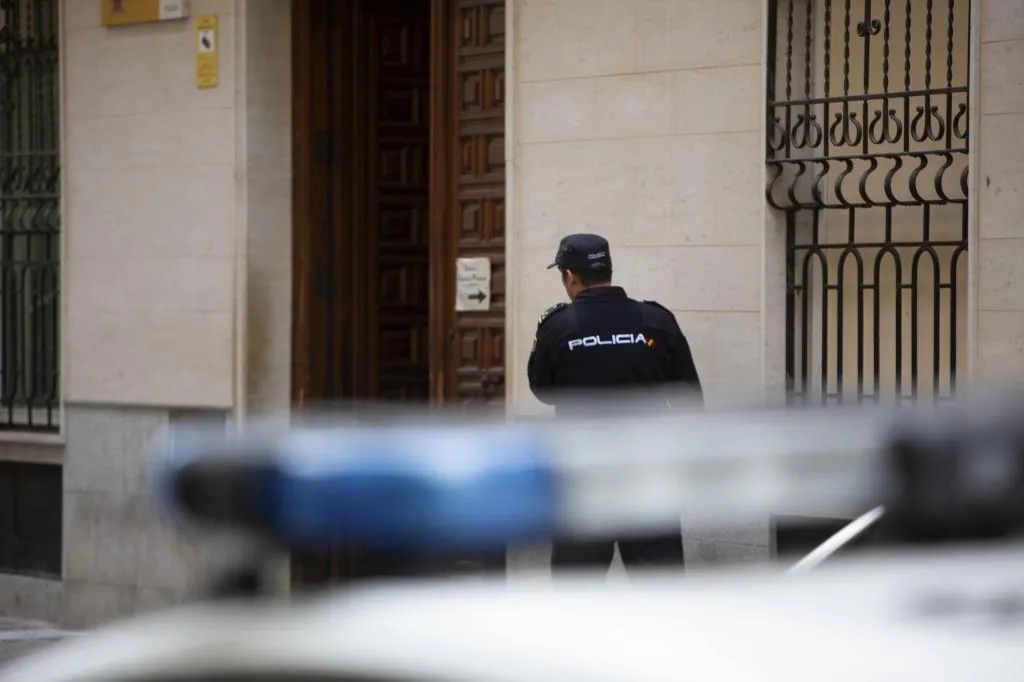Biden convening national security team as tensions flare between Israel and Iran
President Joe Biden will convene his national security team Monday to discuss developments in the Middle East as the region braces for an Iranian retaliation to a series of assassinations blamed on Israel 10 months into the war in the Gaza Strip.
Countries including the United States, the United Kingdom, Australia, France, Canada, South Korea, Saudi Arabia, Japan, Turkey and Jordan have urged their citizens to leave Lebanon as soon as possible.
And on Monday, an NBC News crew reported two sonic booms over the Lebanese capital, Beirut, heightening tensions, although it was unclear where the sounds came from. This came after the Israeli military said it had struck a “terrorist cell operating a drone” in southern Lebanon after “numerous projectiles” were fired at northern Israel.
Meanwhile, Gaza health officials said more than 70 people had been killed in Israeli strikes over the weekend, bringing the total dead during the war there to almost 40,000 people.

In Israel, a senior official told NBC News over the weekend that the country was bracing for a potential multiday attack by Iran and Hezbollah in response to the assassination of Hamas political leader Ismail Haniyeh and Fuad Shukr, a senior leader with the Tehran-backed Hezbollah militant group.
Within hours of the White House announcement Monday, a spokesperson for the Iranian Foreign Ministry told a news conference that “no one can weaken our determination to punish the aggressor” behind the the killing of Haniyeh, who was assassinated in Tehran on Wednesday after he attended the inauguration ceremony of Masoud Pezeshkian, the country’s new president.
The spokesperson added that Israel “must be held accountable for this crime.”
Israel did not say it was behind the assassination, although officials from the country praised it. The killing came a day after Shukr, a senior Hezbollah leader died in an Israel airstrike on Beirut.
Israel military blamed Shukr for an attack in the Israeli-controlled Golan Heights that killed 12 children, saying there was no price too high for the “blood of our people.”
Hezbollah denied responsibility for that attack, but the group began a near-daily barrage of missile and rocket strikes over Israel’s southern border in solidarity with Hamas the day after the Oct. 7 terror attack on Israel, which left 1,200 dead and saw around 240 people taken hostage, according to Israeli tallies.

Israel and its friends like the United States are bracing for a response to the killings of the high-level members of the so-called “axis of resistence” — Iranian proxies or allies in Lebanon, Gaza, Iraq, Syria and Yemen.
After Israel’s deadly strike on Iran’s consular building in Syria in April, Tehran launched retaliatory drone and missile strikes, although a large number were shot down by Israel’s vaunted Iron Dome air defense system, with the help of the U.S., Britain and France.
On Friday, the Pentagon said it would deploy an additional fighter jet squadron and Navy warships, including an aircraft carrier, to the region.
The assassination of Haniyeh’s in Tehran, the capital of its patron and protector, was especially hard to swallow for Iran, Hamas and others in the Iran-backed Palestinian resistance, according to Burcu Ozcelik, senior research fellow at the London based think tank Royal United Services Institute told NBC News via email.
Both Haniyeh and Shukr’s killings “dealt a blow to the prestige and self-authorizing power of these groups,” which have long boasted of wielding “military might and battle-proven status,” she said.

Diplomats have been working to avoid a larger regional war in the Middle East since the Oct. 7 attack. But those efforts have not stopped Hezbollah and the Houthis, two Iran-backed groups, from escalating attacks on Israel in what its groups describe as support for the Palestinian cause.
Meanwhile the death toll in Gaza continues to climb. After an Israeli airstrike hit two schools in Gaza City on Sunday, health officials in the enclave said at least 30 people had been killed. Israel’s military said it struck a Hamas military compound embedded in the schools.
It came after an Israeli airstrike hit a tent camp inside a hospital in central Gaza earlier in the day. Health officials said at least 44 Palestinians were killed.




